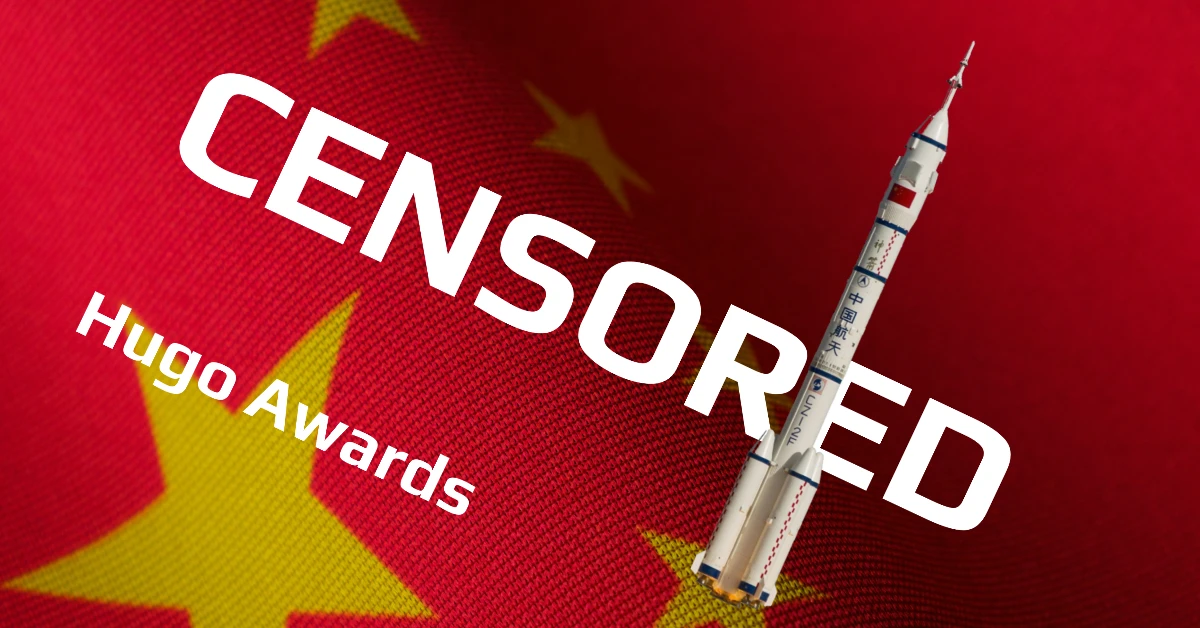What are the Hugo Awards?
Hugo Awards are one of the preeminent speculative fiction awards. They call themselves a ‘science fiction award’, but many of the nominees and winners are clearly in other genres like fantasy, time travel, or even the supernatural. The Hugos date back to the 1950s and are named after Hugo Gernsback, founder of the pioneering sci-fi magazine Amazing Stories.
The Hugos are awarded to works based on the voting of members who sign up for the annual World Science Fiction Convention, or WorldCon, though they don’t actually need to attend to vote. Any work published within the past year is eligible, and members can nominate up to five works in each category (novel, series, screenplay, short story, etc.) The top six nominees make up the final ballot with a final vote to choose the winner. Though the underlying process is a bit complicated, the results are normally straightforward.
2023 Was Different
With the 2023 WorldCon held in Chengdu, China, organizing members of that convention, either through direct or indirect pressure from the Chinese government, decided to eliminate any work that the Chinese might consider offensive. The public may have never known if not for a requirement that the nominations tally be made public. The WorldCon organizers have 90 days to provide the information, and in every previous WorldCon, the nomination numbers were provided within a day or two of the deadline.
Not with the WorldCon in China. Organizers waited until the very last day of the 90-day window to provide the nomination results, well after the convention was over and winners announced. But these nomination results showed several works had enough nominations to be on the final ballot but were not included. These omissions affected world-renown authors including R.F. Kuang, Neil Gaiman, and Xiran Jay Zhao. And though none of these works were directly critical of the Chinese Communist regime, their elimination from contention is nothing short of censorship.
Social Commentary
The beauty of speculative fiction in all its flavors and genres is its willingness to explore social, economic, and political issues. Censorship and book banning is nothing new to speculative fiction. Ray Bradbury’s book Fahrenheit 451 even explores the issue of banning (and burning) books!
But though it has happened before, censorship has no place in the world of speculative fiction – or any art. People should have the right to read what they want, to think what they want, and to do what they want as long as it doesn’t hurt others. Respect and courtesy. There is far too little of each in today’s society – which is why telling these stories is so important. And we need to acknowledge those who do it well.
Tarnished Award
Shame on the Hugos. This certainly tarnishes their quality and reputation in my eyes. To me, they are no longer the pinnacle achievement in speculative fiction. I now look at the Nebula Awards for that distinction.
Final Note
To the regimes that oppress their people and keep them from thinking for themselves: Be warned. Speculative Fiction is coming for you.

Matthew Cushing has written speculative fiction since high school when he began adding elements of mystery and action to classroom assignments. Short stories soon followed with “The Rite to Vote” selected as a 2021 Roswell Award Finalist. His first novel, a sci-fi crime mystery titled The Osect Indiscretion, is underway. An aficionado of science fiction, magic, and the macabre, Mr. Cushing enjoys writing character-driven stories that explore the wonder of ‘what if’ – often with a large dose of humor.
Mr. Cushing has degrees from UC San Diego and Yale University and is a member of the Triple Nine Society, the Rocky Mountain Fiction Writers, and Spec Fic Writers. An animal lover and amateur trombonist, Mr. Cushing lives in Connecticut.

